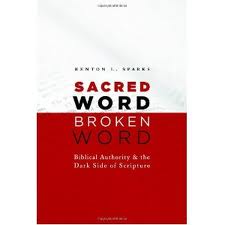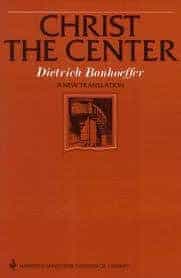 I am continuing my short series on some thoughts generated by Kent Sparks’s recent book Sacred Word, Broken Word: Biblical Authority and the Dark Side of Scripture
I am continuing my short series on some thoughts generated by Kent Sparks’s recent book Sacred Word, Broken Word: Biblical Authority and the Dark Side of Scripture. (You can see the first three posts here, here, and here.)
In this book, Sparks lays out what the Bible is doing and how to read it well. He writes in a compelling and readable style and the book is suitable for church groups, college students, and anyone else interested in why the Bible acts the way it does and what we can learn from that.
In chapter 4, Sparks deals with the problem that commonly besets Christian readers: The Bible does not speak with one consistent voice. Here is the money quote, from p. 32:
Though the Bible is the word of God and, as such, is at first blush expected to be consistent in its viewpoints, and, like God, free of any error, a thoughtful reading of Scripture suggests that it is neither wholly consistent nor error free.
Sparks then lists a number of examples over the next few pages, but he moves quickly to the hermeneutical issue that has been the church’s constant companion since Paul: what do you do when the God speaks differently in the New Testament vis-a-vis the Old. The issue Sparks homes in on is “biblical violence,” i.e., why God kills a lot of Gentiles in the Old Testament.
To make his point, Sparks pairs Matthew 5:43-45, where Jesus commands to love your enemies, to Deuteronomy 20:16-18, where God gives the marching order for killing Canaanite men, women, and children.
This is not a new issue, of course. It has been a problem since the first century or two of the Christian church. It’s one of the reasons why 3rd century theologians like Origen argued, “Maybe we should take this stuff allegorically.”
For Sparks–and no one will be surprised if they have read the book this far–this illustrates yet again how bound the biblical writers were, not here and there, but everywhere, to their cultural context.
 Citing Dietrich Bonhoeffer’s Christ the Center, the Bible is human tradition, written by authors of whom “not only part but all that they say is historically related and conditioned” (p. 37).
Citing Dietrich Bonhoeffer’s Christ the Center, the Bible is human tradition, written by authors of whom “not only part but all that they say is historically related and conditioned” (p. 37).
To put all this another way, Scripture itself raises moral problems for Christians today if we expect it be a moral guide or a full disclosure of God’s will. What we see in Scripture, rather, is a trajectory toward compassion.
Sparks concludes the chapter with a look forward:
I take it that many Christian readers, both liberal and conservative, will find themselves somewhere between the extremes represented by fundamentalism [there is no ethical problem in the Bible] and skepticism [since there are ethical problems, the Bible can be dismissed]. They embrace the Bible as God’s word but are troubled by the difficulties in Scripture…[especially God’s violence in the Old Testament]. In the pages that follow I will try to suggest a way forward that engages Scripture as God’s word while admitting, at the same time, that the ethical diversity that it displays is a factual problem.
Fort Sparks, a proper respect for Scripture means taking such a middle path.

